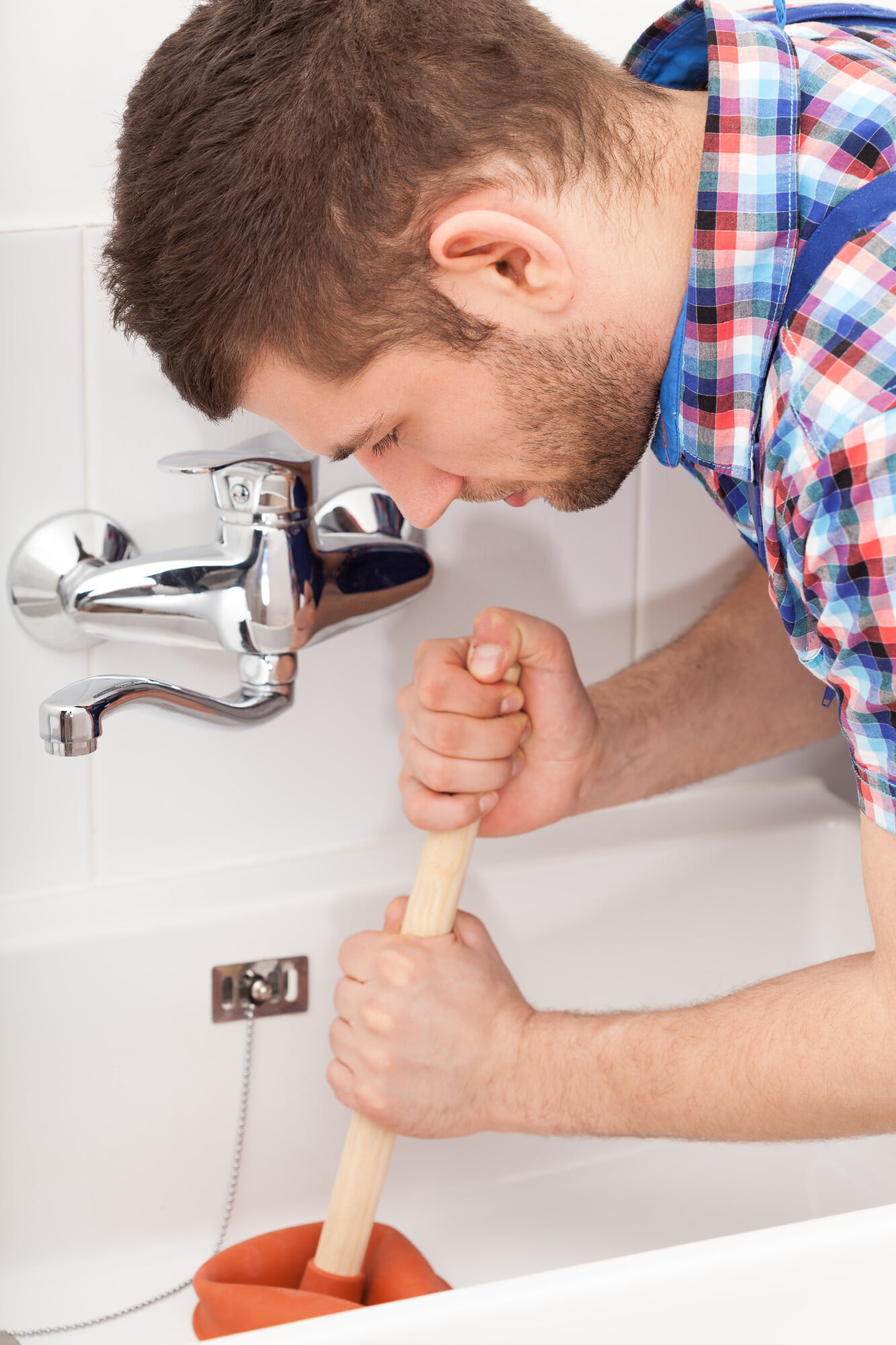When water flows freely through a drain, it’s not a big deal. But when your drains get clogged, it’s a problem that you need to attend to.
Did you know that every minute, 1 trillion gallons of water are wasted due to clogged drains? An interrupted drain can cause a flood on your property and an array of other problems. How do you identify the root cause of a clogged drain and how do you fix it?
This article will explain the most common reasons for a clogged drain and the solutions you can use to fix the problem. Read on to find out more.
1. Grease Buildup in Drains
Grease buildup in drains is one of the most common causes of clogged drains. Grease is liquid when it is hot and solidifies when it cools.
It is heavier than water and so it will sink and accumulate in the pipes, causing a buildup that will eventually block the drain.
It also builds up slowly over time as it is washed down into your pipes when you wash dishes, handle vegetables, and do other food-related activities.
Grease that accumulates in your drains can also interfere with the flow of water and cause clogs. It can also bind with other particles in the pipe, creating an obstacle that prevents the water from flowing freely.
To reduce the chances of your drains becoming clogged with grease, pour any hot grease or cooking oil into a glass jar, let it cool and then dispose of it in the garbage.
If a clog has already been established due to grease buildup, use a liquid drain cleaner, a plunger to loosen the clog, or a professional plumbing service to help you clear your drain.
2. Hair Clogging Drain Pipes
Hair-clogging drain pipes are a common problem that is experienced both in the bathroom and the kitchen. It is caused when a clump of hair gets stuck in the drain, blocking the flow of water.
This can be caused by washing hair directly in the sink or shower, or in bathrooms with long hair. The strands of hair can become tangled around the drain stopper and stop it from closing completely.
In the kitchen, food particles and grease can accumulate on the surface of a drain and create a film that can trap any shed hair.
It is important to regularly remove hair and debris from your drains to prevent blockages, and professional plumbing services should be used if necessary.
3. Foreign Objects Down the Drain
Plumbing issues are also common household issues due to foreign objects getting stuck in the pipe. It is important to be mindful when using drains in the home and to keep foreign objects away from them.
Common items that cause it are small toys, debris from cleaning products, makeup, food and grease, and hair strands. While these objects may seem small, they can easily cause a clog.
To prevent these, it is important to make sure to clean out drains regularly. Additionally, never put anything down the drain that is not meant to be there. Taking these simple measures can help you avoid clogged drains caused by foreign objects.
4. Tree Roots Infiltrating Drains
The roots of trees can damage both underground and above-ground drainage systems, causing blockages and damage. In some cases, roots may even enter the pipes and cause serious disruption to the flow of water.
If a root penetrates a pipe, it will reduce the diameter of the pipe, leading to clogs and backups. Symptoms of tree roots infiltrating a drain may include slow draining, gurgling noises when the water runs, and even complete blockages.
To prevent tree roots from entering a pipe, install a root guard on the outside of your pipes. This prevents tree roots from entering and damaging the pipes.
Additionally, keep your tree roots trimmed and away from your pipes. Regular maintenance and checking of drainage systems can help to identify any potential problems before they become major and costly repairs.
5. Poorly Installed Drain Pipes
Poorly installed drain pipes can be the result of an inadequate slope, inappropriate joint glue being used, incorrect pipe sizes or a combination of these factors.
If drains are not properly installed, water will not flow freely and waste builds up, leading to clogging. In addition, if the pipes are too small, they will quickly become clogged due to the amount of water and waste that needs to pass through them.
Poorly installed pipes also often have fittings or joints that have not been completely sealed, allowing waste and debris to slowly enter your system and build up.
If pipes are not installed correctly, it is likely that they will need to be replaced soon, which can be a costly undertaking. Taking the time to install pipes correctly will result in fewer problems with clogging in the future.
6. Overuse of Chemical Drain Unblockers
Solvents and other unclogging compounds are available in a range of forms, ranging from caustic soda to industrial drain cleaners. For minor issues, chemical unblockers may provide the right solution.
However, their overuse can overwhelm the drainage system. The mixtures of caustics and surfactants are powerful and can form gels or foam that block the entire system from functioning.
It can also corrode pipe walls and cause additional issues in the future. To avoid overusing chemical unblockers, it is best to hire and contact these experienced plumbers for serious clogs.
This will ensure the job is done correctly and that the drain does not end up needing more costly repairs.
Try to Avoid Clogged Drains
Clogged drains can be a hassle and damage your plumbing system. Therefore, it is important to be proactive when dealing with drains. Ensure that only appropriate items are down the drain and if you suspect an issue, act quickly!
Regularly cleaning and checking on your drains can help avoid clogs and major problems. The best policy is to avoid these altogether. This will save you time and money – so take a few minutes to make sure your drains are in good condition!
Did you find this article helpful? Check out the rest of our blogs!




